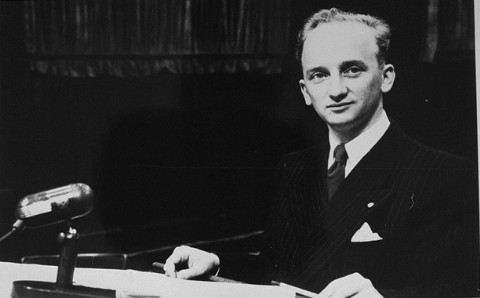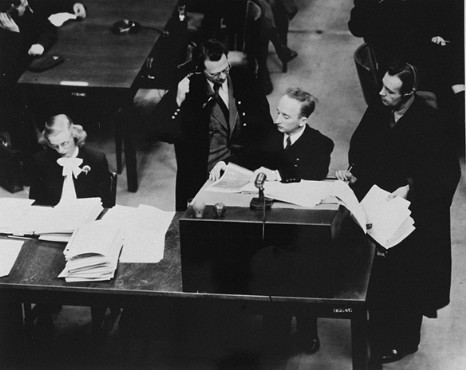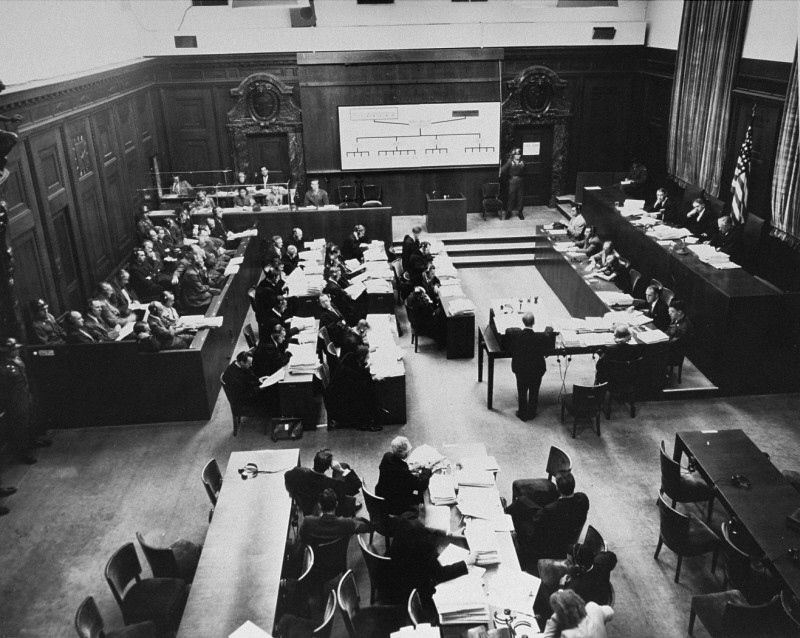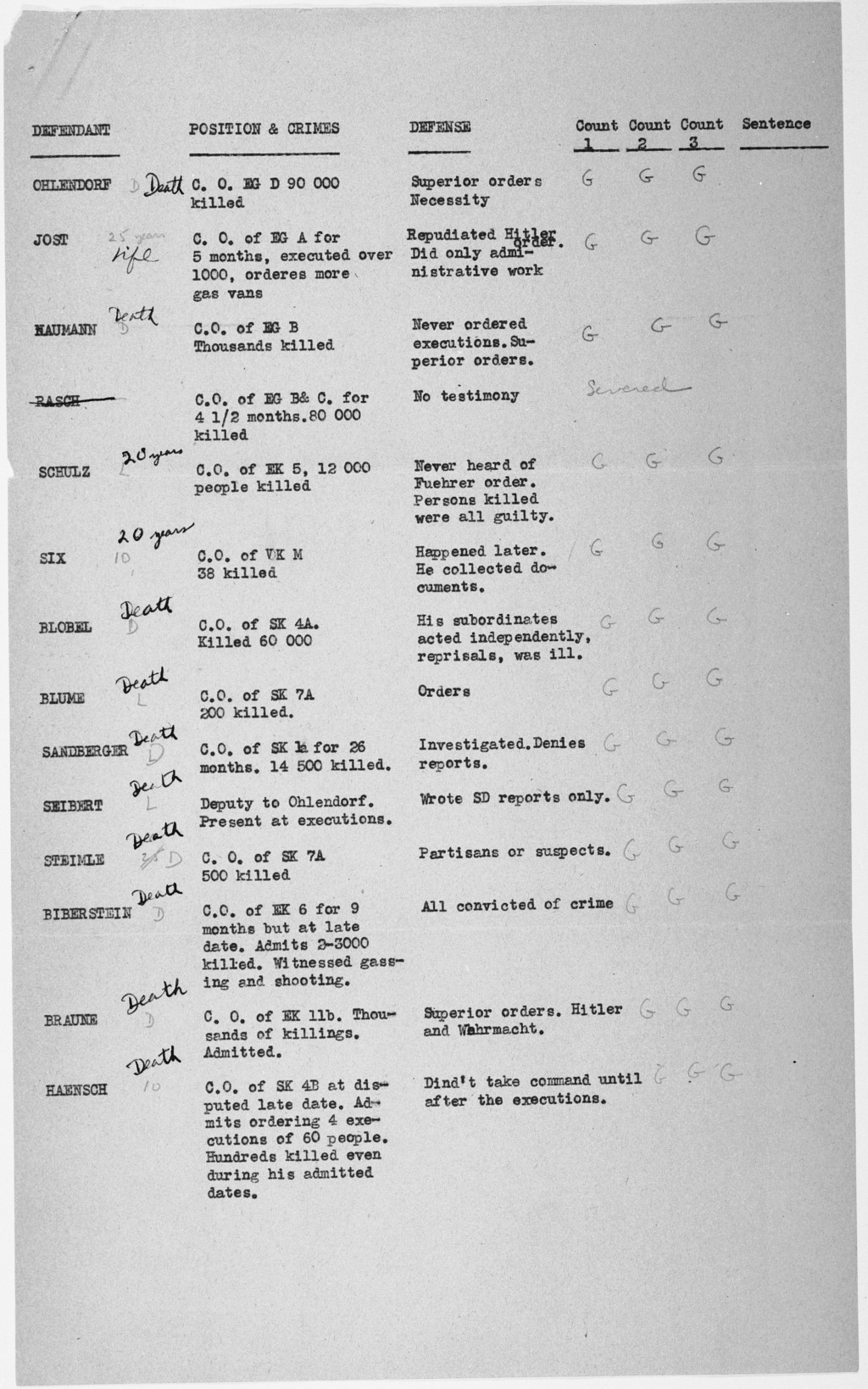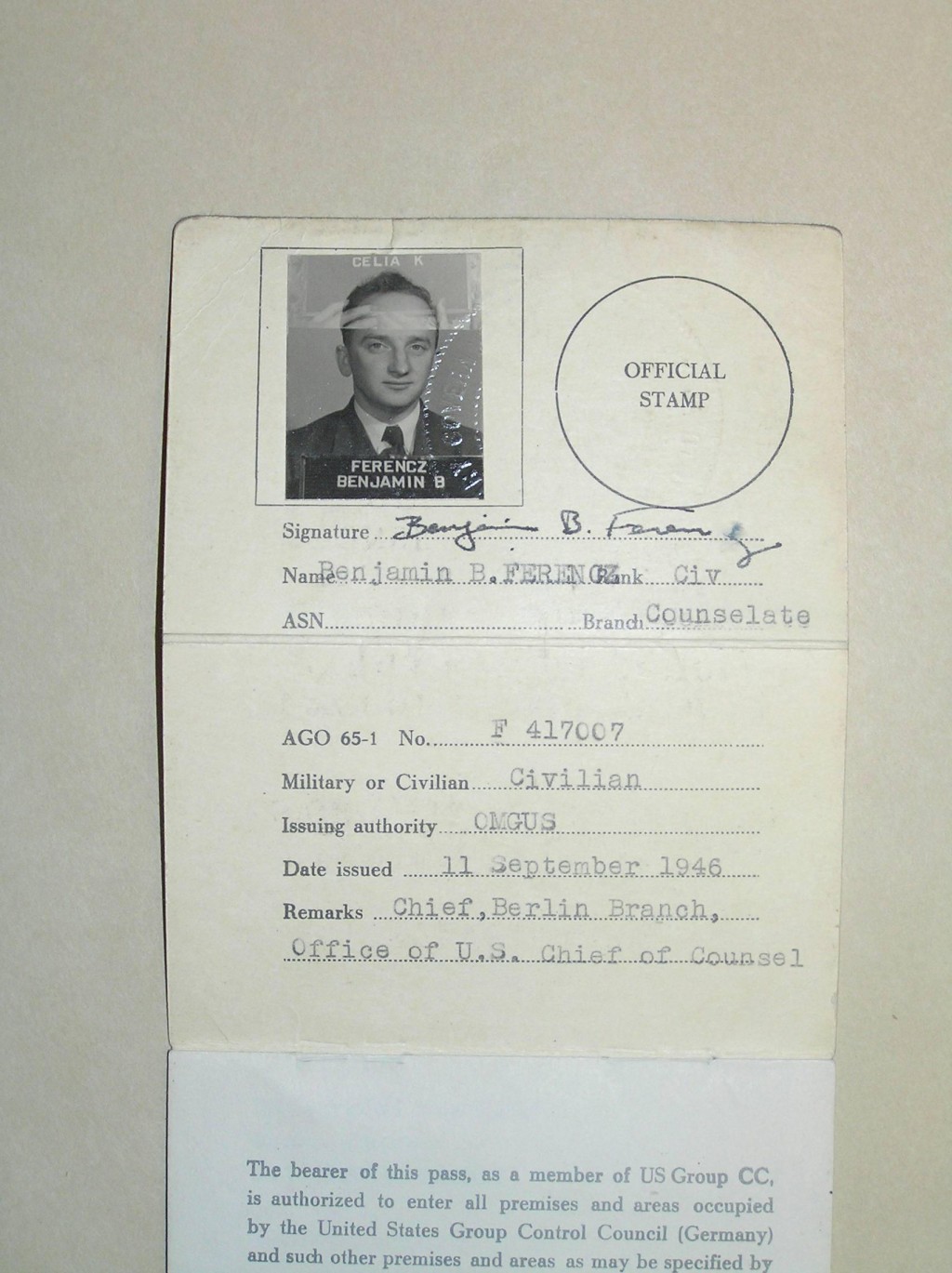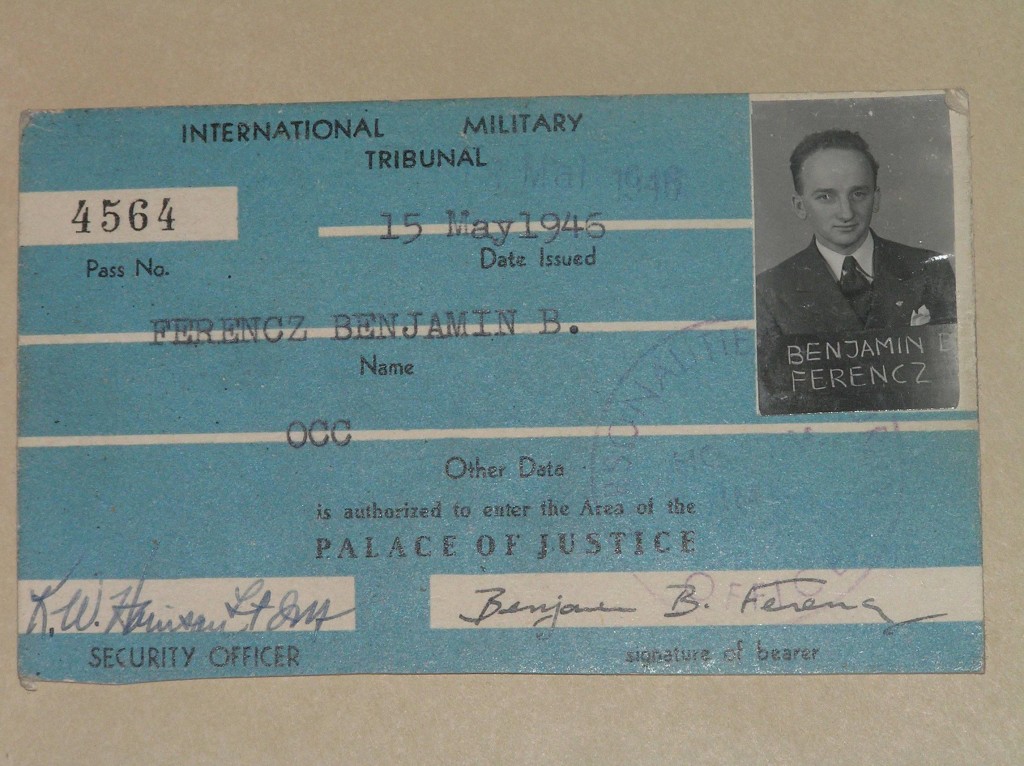
Ben Ferencz and the Fight for International Justice
Benjamin B. Ferencz (1920–2023) devoted his career to creating an international system of justice that protects everyone's right to live in peace with dignity. As a war crimes investigator and a Nuremberg prosecutor, he witnessed the horrifying effects of Nazi crimes. He became convinced that the world can prevent such atrocities only by outlawing and systematically punishing aggressive war and acts such as genocide, crimes against humanity, and war crimes.
Key Facts
-
1
Ben Ferencz both investigated and prosecuted Nazi crimes. In 1947, he successfully prosecuted 22 officers of the Einsatzgruppen in Nuremberg in what the Associated Press billed as “the biggest murder trial in history.”
-
2
After the Nuremberg trials ended, Ferencz fought for compensation for victims and survivors of the Holocaust, the return of stolen assets, and other forms of restitution for those who had suffered at the hands of the Nazis.
-
3
Beginning in the 1970s, Ferencz worked tirelessly to promote development of international mechanisms to outlaw and punish aggressive war and the crimes of genocide, crimes against humanity and war crimes. His efforts contributed to the establishment of the International Criminal Court and to the recognition of aggression as an international crime.
Nuremberg taught me that creating a world of tolerance and compassion would be a long and arduous task. And I also learned that if we did not devote ourselves to developing effective world law, the same cruel mentality that made the Holocaust possible might one day destroy the entire human race.
—Benjamin B. Ferencz
After World War II, the United States sought to bring 185 German leaders to justice before a special military tribunal at Nuremberg. Benjamin B. Ferencz served as both investigator and prosecutor in this process. His experiences in both roles inspired him to advocate for an international system of justice that would help prevent the recurrence of world wars and of crimes like genocide.
Ferencz was born in the Carpathian Mountains of Transylvania in 1920. When he was ten months old his family moved to New York city. They lived in Hell’s Kitchen, an impoverished neighborhood. Ferencz obtained a scholarship to Harvard Law School and graduated in 1943. After graduation, he joined an anti-aircraft artillery battalion in General George S. Patton’s Third Army that invaded and fought in Europe.
As Nazi atrocities were uncovered late in the war, the US Army created a War Crimes Branch to gather evidence of the crimes. Ferencz was assigned to one of the investigative teams. As US Army troops liberated concentration camps such as Mauthausen and Buchenwald, Ferencz accompanied them to seize documents and record evidence of the crimes committed there.
"The Biggest Murder Trial in History"
After his release from the US Army at the end of 1945, Ferencz returned to Europe to assist in the US prosecution of German leaders in the Subsequent Nuremberg Proceedings. He led a team of about 50 researchers who sought out German records and scoured them for evidence to be used in the trials. The team discovered a collection of reports that tabulated the murder of hundreds of thousands of mostly Jewish civilians by the Einsatzgruppen. When Ferencz urged Chief Counsel Telford Taylor to put the Einsatzgruppen leaders on trial, Taylor agreed and assigned Ferencz to prosecute the case. Ferencz was only 27 years old and had never tried a case.
Using only wartime German documents and their own testimony, Ferencz prosecuted 22 SS officers who had served in the Einsatzgruppen, charging them with war crimes and crimes against humanity for their role in murdering more than one million victims. The scale of the murders led the press to dub the case "the biggest murder trial in history." In his opening statement, Ferencz said:
Vengeance is not our goal, nor do we seek merely a just retribution. We ask this court to affirm by international penal action, man's right to live in peace and dignity, regardless of his race or creed. The case we present is a plea of humanity to law.
The court found 20 defendants guilty of war crimes and crimes against humanity and two guilty of a lesser charge. Fourteen defendants were sentenced to death, more than in any other of the Nuremberg proceedings.
The Fight for Postwar Justice
In 1948, Ferencz became head of the Jewish Restitution Successor Organization. This organization sought to aid Holocaust survivors by recovering property stolen by Nazi Germany from its victims. In the 1950s, he helped negotiate West Germany’s agreement to pay reparations to Nazi victims. He also helped Jewish survivors submit their claims.
After returning to the United States in 1956, Ferencz joined the private law practice of Telford Taylor. In 1970, Ferencz decided to devote his time to advocating for an international system of criminal justice that he believes is essential for world peace. "Law, not war," became his motto.
Through numerous books and articles and tireless lobbying efforts with UN officials and the international legal community, he pushed for the creation of an international criminal code and a standing court to try international crimes. He saw success in both endeavors in 1998, when UN member states approved the Rome Statute of the International Criminal Court. This statute established the ICC and defined the crimes within its jurisdiction, specifically genocide, crimes against humanity and war crimes. In 2018, Ferencz’s goal of outlawing war was achieved when the crime of aggression came under the ICC’s jurisdiction.
The ICC began operating in 2002. At its first trial, the prosecutors invited Ferencz to give the closing statement. "What makes this Court so distinctive," Ferencz said, "is its primary goal to deter crimes before they take place by letting wrongdoers know in advance that they will be called to account by an impartial International Criminal Court. The law can no longer be silent but must instead be heard and enforced to protect the fundamental rights of people everywhere."
Ferencz and the United States Holocaust Memorial Museum
Ferencz made his legacy the pursuit of justice for the victims of atrocities. In 2017, he partnered with the United States Holocaust Memorial Museum’s Simon-Skjodt Center for the Prevention of Genocide to establish the Ferencz International Justice Initiative. This legacy continues through the Ferencz Initiative which works to reinforce the legal tools Ferencz helped to develop throughout his life and to equip current-day victims and survivors of mass atrocities to seek justice.
Critical Thinking Questions
- Beyond the verdicts, what impact did the trials have?
- How does this trial demonstrate the complexity and the systematic nature of the German efforts to abuse and kill the Jews?
- Besides military participants, what other professionals were charged with crimes in the wake of the Holocaust? How did national histories, agendas, and priorities affect the effort to try war criminals after the war?
- Investigate trials conducted by individual countries in the late 1940s.


